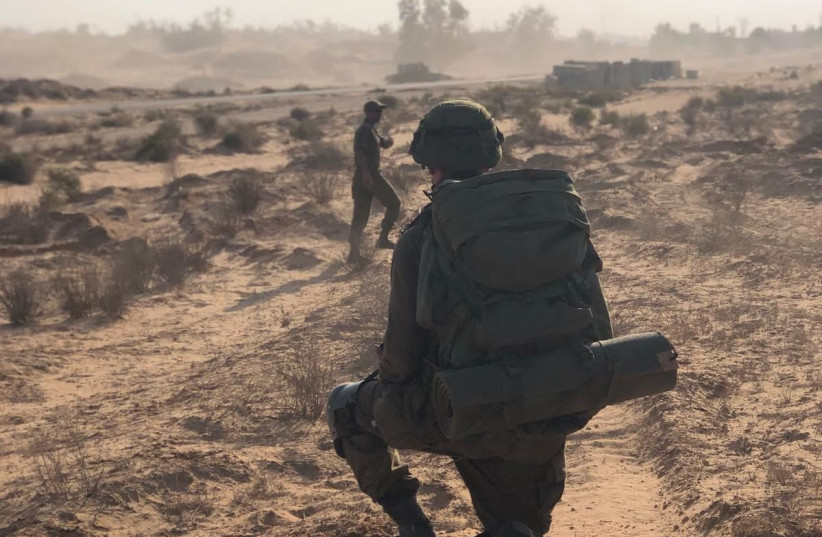Alissa Abrahami knew she was destined to live in Israel from the moment she returned to Toronto after her gap year. After spending a year in Israel on the Kivunim program, it did not feel right to her to resume her normal day-to-day life at home.
Abrahami had always been involved religiously. Growing up, she went to a Jewish day school and Jewish summer camp. She spoke minimal Hebrew but knew how to read and write.
“The intention was never to make aliyah,” she said. “But when I came back from Kivunim, something just didn’t really sit right with me, not being in Israel.”
Coming to live in Israel
She immigrated to Israel with Garin Tzabar and was sent to a kibbutz in the North as a lone soldier.

“It was important for me to join the army. I moved to Israel because I wanted to live in Israel long term, and I knew that doing the army was an important step toward that,” she said.
“It was important for me to join the army. I moved to Israel because I wanted to live in Israel long term, and I knew that doing the army was an important step toward that.”
Alissa Abrahami
It meant a great deal to her to do her part, and by joining the army she was able to learn Hebrew, make friends and understand more about the place she had moved to.
After serving her two years, she worked and traveled in Asia, then began studying at Reichman University in Herzliya, majoring in government and sustainability, with a concentration in diplomacy. Now, one year after graduating, she works for a tech magazine in Tel Aviv.
“It’s an opportunity. When you’re first out of college looking for work experience, you can’t be the pickiest when it comes to your first job, so I took it,” she said. She hopes to continue her education by going back to school in the next year or so.
“This is something I’ve always been good at in life – not to have expectations for certain situations,” Abrahami said about what she expected out of her first years in Israel. “That leads to disappointment. I went into it thinking, ‘I am doing [the army] as a means to an end goal.’ I don’t think there was anything that was too shocking.
“Being around other Israelis who maybe have never been away from their parents wasn’t something I could relate to,” she said. She spent her summers away from her parents at sleepaway camp, only able to contact them through letters. After moving to Israel, she knew she would only be able to see them every year or so.
“That was the biggest shock. I found that everyone I interacted with had something to complain about. That was really frustrating for me,” Abrahami said. By going in with no expectations, she found that she quickly adjusted to what was expected of her; she didn’t want to be a complainer. She understood that part of being an Israeli meant serving in the IDF.
“Having some sort of support system when you move is really important,” she said.
She feels that living in Israel has given her a new outlook on life. “The problems that we face in Israel [feel] important; it gives me this kind of perspective that makes me appreciate life more, makes me appreciate what I have. I’m very lucky,” she said.
“The biggest reality that I’ve faced is that the only people who can relate to what you’re doing and going through are other olim who took the same path that I did,” she said. “Not having your family, not having your friends – [other Israelis] don’t understand it at all, and they can’t.”
She can relate best to other olim who have gone through a similar aliyah process, and that’s where she has found her community in her new home. The cultural differences have been challenging, but for her the aliyah process overall has been very easy.
“I know this is where I want to be. I’m very happy, and very lucky that I had this certainty I wanted to be in Israel [at a young age].”
